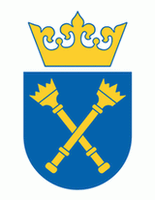O brave youth, how good for thee it were couldst thou be made to understand how infinitely precious are thy school years—years when thou hast leisure to grow, when new worlds break in upon thee, and thou fashionest thy being in the light of the ideals of truth and goodness and beauty! If now thou dost not fit thyself to become free and whole, thou shalt, when the doors of this fair mother-house of the mind, close behind thee, be driven into ways that lead to bondage, be compelled to do that which cripples and dwarfs; for the work whereby men gain a livelihood involves mental and moral mutilation, unless it be done in the spirit of religion and culture. Ah! well for thee, canst thou learn while yet there is time that it will profit thee nothing to become the possessor of millions, if the price thou payest is thy manhood.
John Lancaster Spalding, Aphorisms and Reflections (1901), pp. 58-59.


